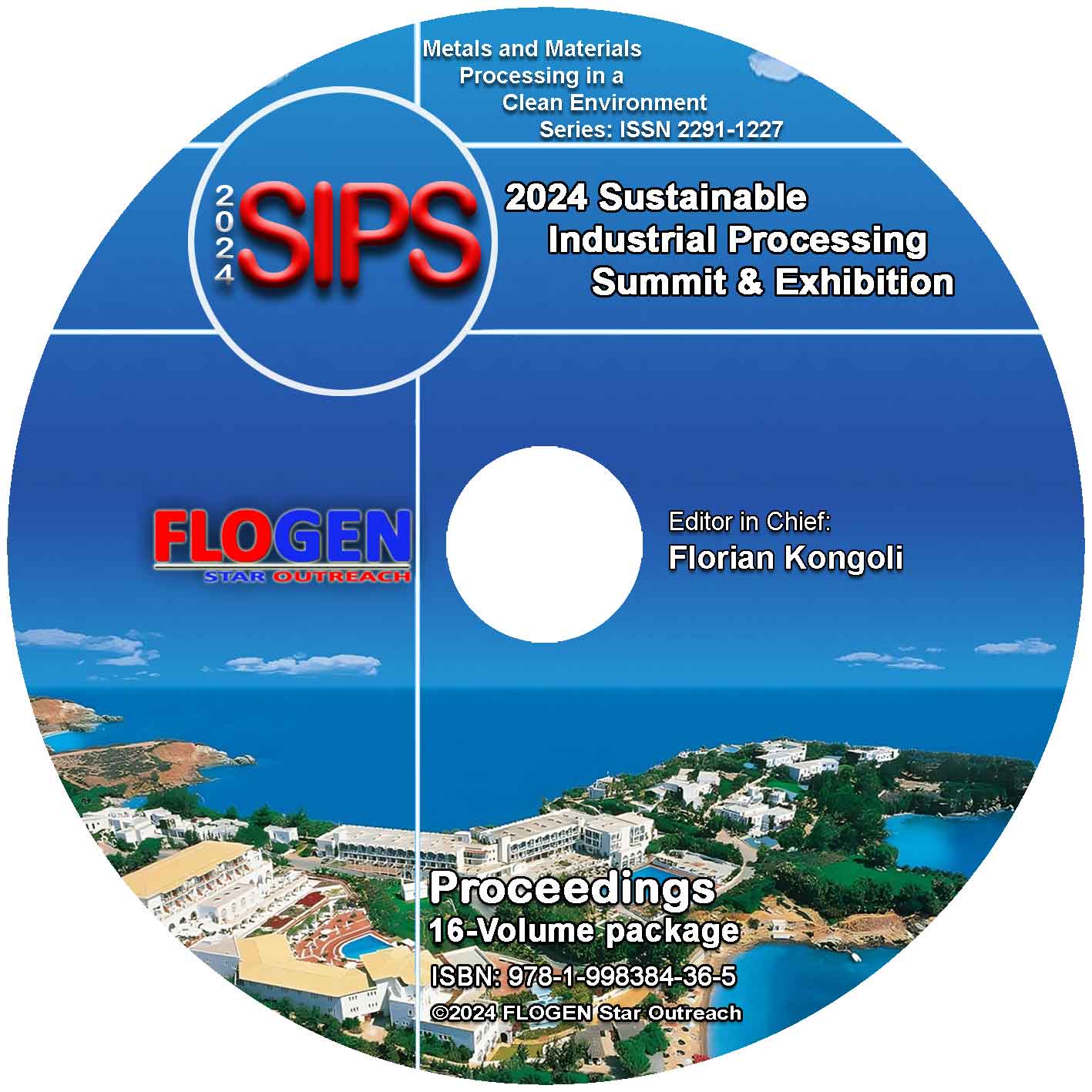2024 - Sustainable Industrial Processing Summit
SIPS 2024 Volume 8. Monteiro Intl. Symp / Composite, Ceramic and Nano Materials Processing
| Editors: | F. Kongoli, P. Assis, H.A.C. Lopera, S. Diaz, V. Scarpini Candido |
| Publisher: | Flogen Star OUTREACH |
| Publication Year: | 2024 |
| Pages: | 288 pages |
| ISBN: | 978-1-998384-18-1 (CD) |
| ISSN: | 2291-1227 (Metals and Materials Processing in a Clean Environment Series) |

CD shopping page
THERMODYNAMIC ANALYSIS OF THE Sc-Hf-B-O-C SYSTEM FOR OBTAINING A MIXTURE OF Hf AND Sc BORIDE POWDERS
Ketevan Ukleba1;1FERDINAND TAVADZE INSTITUTE OF METALLURGY AND MATERIALS SCIENCE, Tbilisi, Georgia;
Type of Paper: Regular
Id Paper: 17
Topic: 18
Abstract:
Currently, all over the world, intensive development of new materials is being carried out for the development of industry. Of particular note are materials containing metal borides. In our case, Hf and Sc borides, which have a unique set of physicochemical properties: high melting point, mechanical strength, thermal stability and exceptional wear resistance, corrosion and oxidation. These unique properties make them ideal for high temperature applications in key areas, such as the aerospace industry, nuclear power, the automotive industry and the latest electronic devices, and also as a component of light heat-resistant alloys.
In most cases, the production of composite and nanostructured materials is carried out as a result of various oxide reduction reactions and therefore the study of processes of this type is one of the main tasks.
The purpose of this work was to conduct a thermodynamic analysis of the formation of Hf and Sc borides, and based on this analysis, to conduct experiments on the manufacture of nanostructured composite materials in the future.
A thermodynamic analysis of the Sc-Hf-B-O-C system at high temperatures in vacuum was performed for the following reactions: 1. Sc2O3+HfO2+3B2O3+14C=2ScB2+HfB2+14CO;
2. Sc2O3+HfO2+6H3BO3+23C=2ScB2+HfB2+9H2+23CO.
Information about the FTA of the system in question has not been found in the available literature. Therefore, it is of great interest to carry out the FTA of these reactions. The calculations were carried out using the ASTRA-4 program [3] in the temperature range of 1000-3000 K with a step of 2000 in vacuum.
When studying the equilibrium of a reaction, knowledge of the properties and accurate, reliable thermodynamic data of the components and compounds involved in the system is necessary. However, data on some thermodynamic characteristics of these borides (H0298-H00, ∆Hmel, Cp, Cp(liq)) are not observed in reference books.In this regard, we calculated the values of these thermody-namic characteristics of the indicated borides, the calculation methods for which were developed in [1] and entered into the ASTRA-4 program database.
The main results of FTA are presented in the form of diagrams (dependence of the content of components on temperature in the range of 1000-3000 K).
Thus, it can be concluded that the method of complete thermodynamic analysis used by us makes it possible to judge not only the equilibrium conditions of the processes occurring in the system, but also the mechanism of interaction of components in complex systems and, consequently, adjust the composition of the final product, and it is also possible to minimize the number of experiments.